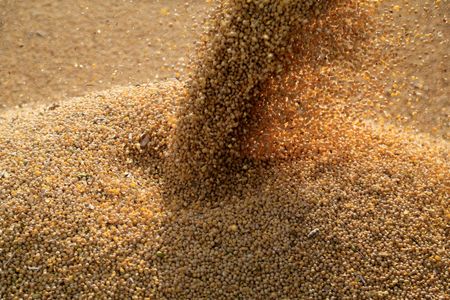By Roberto Samora
SAO PAULO (Reuters) – Brazil, the world’s biggest soybeans supplier, has overtaken rival United States as the most competitive shipper of the oilseed to top importer China, the head of rail company Rumo said on Thursday.
Rumo Chief Executive Joao de Abreu noted Brazil’s cost per tonne in dollars to ship soy to China was lower than that of the United States in the first half of this year.
“Brazil has just become more competitive than the United States to move agricultural products to their destinations,” he said during an event in São Paulo. “I am talking mainly about China, Brazil’s top market.”
Rumo is a leading rail company and operates Latin America’s biggest grain terminal in Rondonopolis, in the south of Mato Grosso state, at the heart of Brazil’s farm country.
While reaffirming plans to add more logistics capacity there soon, Abreu said the country cannot stop investing to keep its competitive edge.
“We are going to start (building) a railroad serving the north of Mato Grosso, which accounts for 40% of Brazilian grain exports,” he said, adding the state only has 300 kilometers (186 miles) of railroads.
Rumo’s project will add another 700 km there, connecting farmers in remote parts of the state.
In recent years, Brazil has made progress improving its national infrastructure, even though most of its cargo is still moved by trucks.
One key development involved shipping more grains through northern ports, an operation that entails the use of barges, with Brazil taking advantage of its abundant Amazonian waterways to ship produce.
That became a competitive alternative compared to relying solely on southern ports like Santos and Paranagua.
U.S.-based Cargill, for example, operates two transshipment hubs in the north, one at Miritituba on the Tapajos river, and another at Porto Velho on the Madeira river.
“Brazil is among the leaders in productivity, but (now) also in logistics,” Abreu said. “Overtaking the United States is very important,” he said, emphasizing hefty investments in recent years.
(Reporting by Roberto Samora; Writing by Ana Mano; Editing by Sandra Maler)





